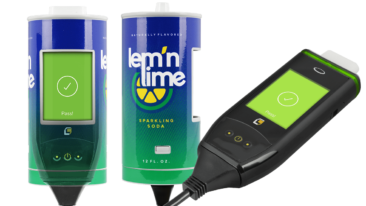
What Happens When You Get a DUI?
Drunk driving remains a serious problem in the United States today. While certain measures, like sobriety checkpoints and enforcing minimum legal drinking age laws have significantly reduced drunk driving incidents, they still happen frequently. In 2015, about 1.1 million people were arrested for driving under the influence of alcohol or narcotics. Each year sees about 111 million self-reported incidents of alcohol-impaired driving.
Getting arrested for driving under the influence can be a sudden and scary moment, especially if you’re not sure of the steps that follow. The arrest is just the beginning and can be followed by court appearances, fines, traffic school, and more. Read on to learn what happens when you get a DUI.
The Traffic Stop
Every DUI charge starts with the traffic stop. Sometimes, this may be a routine traffic stop. Maybe a police officer noticed that one of your tail lights is out or you rolled through a stop sign. Some areas may also have sobriety checkpoints where officers stop all cars passing through to check drivers for signs of driving under the influence of drugs or alcohol.
Each state has different laws concerning DUI checkpoints. Some states do not use sobriety checkpoints, while others include them in their drunk driving deterrence programs, especially during holidays or times when there may be a higher risk of drunk drivers on the roads.
More often than not, the police officer probably noticed that you were speeding, weaving in your lane, or otherwise driving suspiciously or erratically.
Testing for Sobriety
Once the officer pulls you over and suspects that you may be driving under the influence, they will administer a test to actually determine if you are drunk. This usually starts with a field sobriety test, which can help the officer evaluate your condition to determine whether to move forward with a DUI arrest or chemical test. The field sobriety test can comprise a variety of tasks, including:
- Walking in a straight line – This may also involve walking heel to toe while counting. Things like being unable to balance, using your arms to steady yourself, or stepping out of line may all potentially suggest to the officer that you are impaired.
- Horizontal gaze nystagmus – With this test, the officer will ask you to look at a small penlight as they move it from side to side. Normally, when your eyes look sideways at an angle of greater than 45 degrees, you set off an involuntary twitching of the eyes known as nystagmus. People with a higher blood alcohol concentration will trigger nystagmus at angles much less than 45 degrees. Drivers with a higher BAC may also have trouble following the light without moving their heads.
- Stand on one leg while counting to a certain number – Similar to walking in a straight line, this tests your physical balance as your mind focuses on the separate task of counting. Wobbling, hopping, using your arms, or putting your other leg down may all point to possible impairment.
As you can imagine, none of these tests can individually determine a person’s drunkenness, but taken together, they can give an officer a general idea of how to proceed. If the officer does think that you may be intoxicated, they can administer a chemical test. This can provide actual, quantifiable data by measuring your blood alcohol concentration.
Blood tests are usually only administered in hospitals or other medical facilities, and urine tests have become less common as they have been found to be less reliable. Instead, officers use portable breathalyzer devices to measure your BAC. Many times, the officer will conduct a breath test at the site of the arrest and after bringing you into the station as police stations have larger, more accurate breath test systems.
All states now have a legal BAC limit of 0.08 percent. That means that if you show a BAC of 0.08 or higher, you are legally over the limit and liable for arrest. However, even with a BAC lower than 0.08, you can show signs of intoxication. Some states have begun enforcing buzzed driving laws that involve fines and other penalties if you have a BAC lower than 0.08 percent.
Understanding Implied Consent Laws
Every state in the nation enforces implied consent laws. Implied consent means that, by owning a driver’s license, you automatically give consent to take any chemical tests administered by an arresting officer if they suspect that you are driving while intoxicated.
If you refuse to take the breath test, you are breaking the implied consent laws and will be subject to various penalties. Breaking an implied consent law is separate from a DUI, DWI, or other related drunk driving charge. This means that even if you are found not guilty of a DUI, you are still required to serve the penalties for breaking an implied consent law.
Although you have the personal right to refuse a chemical test, it is almost always in your best interest to submit to the chemical test. Along with implied consent laws, some states have no-refusal laws, which allow officers to obtain quick warrants to force you to submit to a breath test if you initially refuse. In some states, refusing a test can be used as evidence against you, and even without the results of a breathalyzer test, the officer can still charge you with a DUI based on their observations and the results of the field sobriety test.
Arresting and Booking
Specific procedures can differ from state to state, but generally if the police officer confirms that your are drunk, they will take you into custody, place you in their vehicle, and take you to the police station. Your car will be impounded, meaning it will be towed and placed in a designated location until you can legally retrieve it. At the police station, you will be booked, which essentially involves:
- Recording your name, the crime you are being charged with, and any details about the arrest (including all events preceding, during, and after the actual arrest)
- Taking your photograph
- Collecting your fingerprints
- Conducting a personal search
- Confiscating your purse, wallet, keys, cell phone, and other personal items (these items will be returned to you upon your release)
The amount of time you actually stay in custody depends on the state laws and your personal situation. In some states, you may be released immediately if a friend or family member comes to the station, pays your bail, and drives you home. Some states require a mandatory holding period until you are completely sober, which may mean an overnight stay.
In some states, you may have to remain in custody until your arraignment or other administrative hearing processes. These are generally conducted by a magistrate or judicial officer. While an arraignment shouldn’t take long, you may have to wait longer if you are arrested at night or on a weekend as some jurisdictions may not always have a judicial officer on hand. If the state requires an arraignment prior to your release, the arraignment will likely include setting a bond or bail along with a license suspension. Some jurisdictions will issue a temporary license until they can reach more permanent penalties.
Court Appearances and Trials
Once you have been taken into custody, booked, and arraigned, you will be given a ticket or court summons, which tells you the date that you have to appear in court. Courts will also assign you a lawyer, or public defender, but you have the right to decline and hire your own lawyer.
The hearing for a DUI should be fairly straightforward. Unless you caused personal injury, death, or extensive damage to personal property, you can expect fairly short proceedings. The officer that arrested you will present their evidence, which will include your chemical test results. Your attorney will then present your case.
The judge will consider the evidence and your lawyer’s representation to determine whether you are guilty and any penalties associated with a guilty charge.
DUI Penalties
Penalties for a DUI may vary based on the state’s laws and the severity of your case.
License Suspension or Revocation
All states will require a loss of driving privileges for a period of time, even for a first-time DUI conviction. Some states with admin per se laws will suspend your license immediately if you refuse to take a chemical test at the time of arrest, before you even go to court.
Some states may offer temporary licenses or hardship licenses that allow you to drive to and from work or school while your normal license is suspended or revoked. However, these licenses heavily restrict and limit your driving privileges.
Fines
All states set minimum and maximum fines for DUI charges, but those fines can increase based on any extenuating circumstances, including:
- Damaging property
- Causing personal injury
- Having a child in your vehicle at the time of arrest
On top of your fines, most states also have court costs and fees associated with your case that you are required to pay.
Jail Time
Although jail is usually reserved for more extreme cases, many states have begun enforcing mandatory jail periods, even for first-time DUI offenders. Usually, this may comprise just one or two days that can be served on a weekend, but a jail sentence is still a jail sentence. Repeat offenders will likely have to serve longer jail periods, and more extenuating factors will contribute to longer jail sentences.
Probation
Even if you are not sentenced to jail, you will likely have to serve probation. The terms of probation depend on your case. The idea is that if you break those terms, you will be sent to jail. Probation itself will also come with various fees involving the administration and supervision involved with your probation. These fees are usually charged as a monthly payment.
DUI Classes
Many jurisdictions require that you enroll in and complete a drug and alcohol education program in order to reinstate your driving privileges. These classes require a fee and often comprise information about drunk driving prevention and ways to assess your own drinking habits.
Alcohol Evaluation
Along with classes, you must partake in an alcohol education and assessment program. You will talk with a trained counselor, who will evaluate your drinking habits and patterns to determine if you are suffering from an alcohol abuse disorder. This can be hugely helpful as it can identify some serious issues and begin the first steps to recovery. If your counselor does find that you may have an alcohol abuse or dependence disorder, the court may require you to undergo a treatment program before you can drive again.
Ignition Interlock Device Installation
Many states are also requiring the installation of an ignition interlock device when you get a restricted license. An IID connects to your car’s ignition system. When you blow into the IID, it measures your BAC. If it is below a certain level, you can start your car as normal, but if it exceeds the set limit, it will lock your ignition for a set period of time. IIDs also require occasional breath samples while you are driving.

